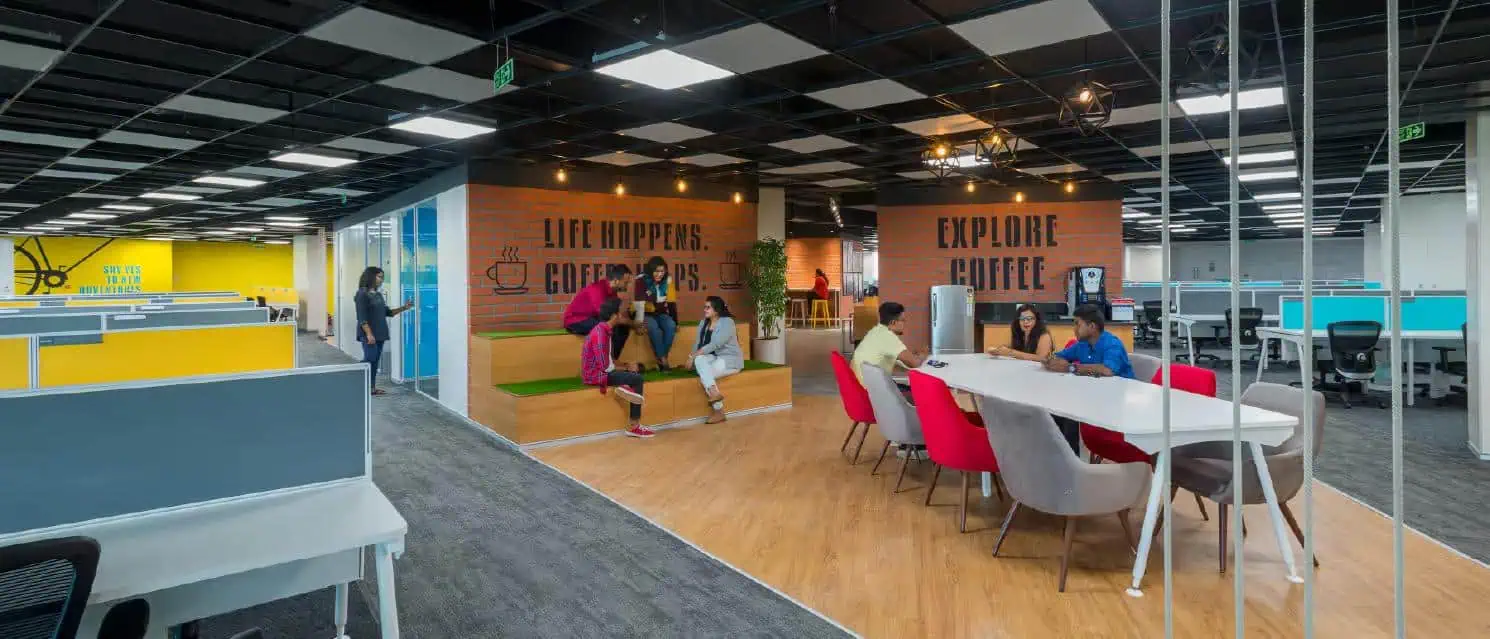The whole of the business world is iterating the concepts of diversity and inclusion in the workplace, wanting to have diverse teams and leadership. But doing so without knowing why diversity in business is crucial can be harmful. Implementing diversity initiatives just for the sake of having a “diverse looking” workforce is not going to work for any business. So then, what does diversity in the workplace refer to?
Diversity means eliminating the biases based on gender, race, caste, creed, sexual orientation, age, education and socio-economic backgrounds. With diversity comes responsibility; responsibility to accept everyone, the responsibility to make everybody feel heard and cared for; and the responsibility to create a diverse environment. As mentioned in the blog- How Inclusivity Will Bring Out the Best in Your Organization; A healthy work environment believes in understanding, accepting and valuing the behavioral patterns of the workforce.
Thus, with diversity in action, businesses need to develop a strategy that helps in understanding, accepting and valuing the diverse behavioral patterns and needs of the workforce. But this has to be a two-way process. Diversity must lead to the growth of the business as well, and it surely will, if executed appropriately. Therefore, to understand managing diversity in the workplace better, let us break this concept of workforce diversity management into four basic questions-
- Why is diversity important right now?
- What mistakes should businesses avoid?
- What must businesses focus on?
- How can businesses benefit from diversity?
Let us have a look!
Why Is Diversity Important Right Now?
Covid19 has put businesses in jeopardy due to disruption in operations and supply chain, dislocation of the workforce, and loss of revenue. But with collective efforts and engaged employees, businesses can lead on to the path of recovery depending on the resilience and re-imagination skills of the employees.
Thus, with a diverse environment and talent pool, companies can easily sustain these uncertain times.
Moreover, strategic agility- the ability to think ahead of the market and adapt to market shift is enhanced when diverse perspectives and skills working together feel being a crucial part of the business.
What Mistakes Should Businesses Avoid?
Diversity and inclusion policies are easier said than done. Businesses need a well-thought strategy to exercise these policies from paper to reality. To start with, here are the top 3 mistakes that businesses must avoid:
Holding Only HR Accountable For Diversity & Inclusion
HR is the point of contact to ensure the teams are diverse and that inclusive policies are well-executed, no doubt! But it is not their sole responsibility. Diversity and inclusion in the workplace must emerge right from leadership positions for businesses to grow. Moreover, it must reflect across departments – IT, supply, marketing and communication. A business will outperform when collaboration is enhanced. Collaboration would improve when everyone at the workplace accepts each other and acknowledges each other’s views and skills.
Executing Only Diversity, Missing Onto Inclusion
Might sound irrelevant, but this is the most common mistake in managing diversity in the workplace. Just hiring diverse talent won’t do good, if the workforce does not feel included. Most companies have diversity policies on paper but fail to execute them on practical grounds. Businesses can benefit by focusing on how their culture can fit well with the needs of the employees rather than trying to make employees fit in the existing company culture.
Focusing On One Segment of The Demography
This would avert the whole meaning of a diverse workforce in the first place. Businesses tend to associate diversity with just having more female employees on board. While this is a part of the process, it is not the whole of it. Diversity is a vast concept, and for the business to be successful, everyone along this widespread spectrum needs to lean in to be a part of the process.
What Should Businesses Focus On?
Diversity can aid in the development of new products and help businesses cater to a wide range of clients much more efficiently. Therefore businesses must focus on:
Nurture a Diverse Thinking Environment
When you have diversity in business, there is a difference in ideas and perspectives; there can also be conflict due to varied opinions and references. But when companies nurture a diverse thinking environment, offering everyone equal representation and making everyone understand each other, the results can make every business pitch strong and benefit the company’s performance.
Develop a Multigenerational Workforce
Generational diversity is often ignored but is needed much more than ever. With a major generational shift at the workplace, the roles and skills required have changed too. While the millennials can be tech-savvy and good with tools, the elder generation would be good with communication and understanding the market. Thus with a multigenerational workforce, the exchange of ideas and skills can become easy and the workforce can learn from each other practically. On the business front, training employees become much efficient.
How Can Businesses Benefit from Diversity?
The benefits of diversity can be immense; let’s explore the major ones:
Financial Growth
A study by Forbes suggests that diverse companies can enhance their revenue by 19%
Innovation
A study on diversity and inclusion in the workplace by Deloitte says that diversity can grow team innovation by 20%
Talent Attraction
As per Glassdoor, 67% of job seekers consider workplace diversity as an essential factor.
Market Position
An article by Builtin highlights that racially and culturally diverse ethnic companies are 35% more likely to perform well in the market.
Workforce Loyalty & Retention
79% of organizations believe catering to diversity by a sense of belonging among employees has proved successful, according to Deloitte’s Global Human Capital Trends report.
Diversity and Inclusion at Zyeta
Diversity and inclusivity are at the heart of Zyeta’s culture existing in two forms – employee-centric and customer-centric. On the customer-centric front, we as workplace designers study diverse user groups, thereby curating conducive as well as inclusive workspaces and work cultures through our research and design. Whereas on the employee-centric front, we believe that the progress of our firm lies in the growth of our people, giving them a sense of belonging at our workspace and creating a community of engaged employees.
Bonus Tip:
For small businesses, successful diversity programs can ace up the reputation in the market, minimizing the efforts and additional costs on advertising and talent acquisition. This will also boost their visibility among prospective clients and collaborators.







